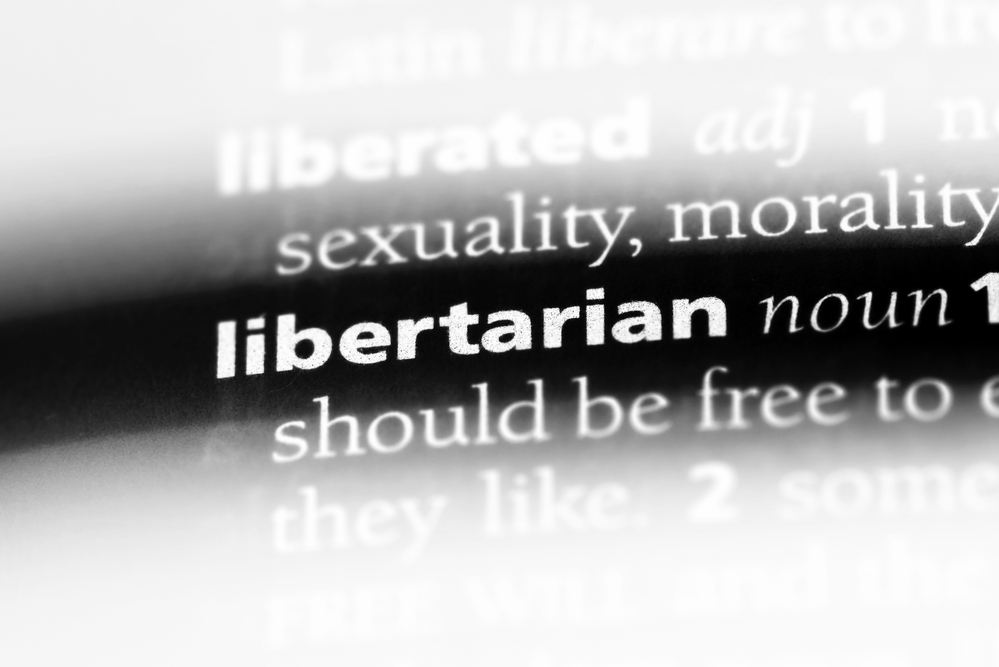When Will the Libertarian Party Have Its Moment?

Last week, I started posting about my investigation into the apparent implosion of the Libertarian Party. You can read my previous posts here, here, and here. In this post, I try to draw some conclusions, and I hope to hear your reactions.
When you talk with leaders from each side of this conflict it’s clear that even though both camps are much, much closer ideologically than they’d admit, ultimately Aristotle was right – humans are fundamentally political creatures. The entire episode reminds me of a conversation I had at one of my first Liberty Fund conferences when I was hired, directed by Pierre Lemieux. I was talking with a conferee who was eyeing me suspiciously and asked me, which economist I preferred, Mises or Hayek. I told him that as a political scientist I was more drawn to Hayek, and this prompted him to label me a socialist, turn away from me and find someone more “orthodox” to chat with.
The broad contours of a liberty-based political movement would be simply less government and more personal freedom and responsibility in realm x. One would hope people could compromise on the range of constriction on government and expansion of individual freedom somewhere between 100% and 5%. But for more than 5 decades the Libertarian Party has been unable to create a broad consensus on how to pursue those goals. That leaves the world without the prospect of seriously considering more liberty during public deliberations over governance alternatives. Elections, admittedly highly imperfect ways to decide governance, are worse for not providing voters with a wide range of options and choices. The frustration for observers and non-combatant libertarians in this conflict is that we face an upcoming election featuring two deeply unpopular, anti-liberty candidates. The fear that libertarians will find no representation in this election is not invalid.
Before the infamous Aleppo moment, there was a world in which Gary Johnson and Bill Weld might have done even better in 2016, regardless of who won. But after the meltdown, Weld’s statements were hardly consistent with what most libertarians believed. Frustration and unrest caught up with the Old Guard. Conversely there’s no reason to believe that maintaining a hard core, don’t tread on me, Rothbard/Paul line is the only way forward for the party. The question has been how to bridge that gap and maintain the energy and enthusiasm that the Mises Caucus brings with the mainstream demand for a more professional, unified LP during national and state elections. In theory, the two sides need each other. If Nick Sarwark and Steven Nekhaila are both right, the energetic, idealistic, younger crowd complements and needs some of the experience and pragmatism of the Old Guard. Conversely, the Old Guard won’t win by strategy alone. There won’t be success without a motivated core.
If recent events tell us anything it is during crises, periods in which voter dissatisfaction is at its peak, that non-mainstream alternatives are taken most seriously. For evidence of this, look no further than Javier Milei, who just became the president of Argentina, armed with many of the ideas of intellectual libertarian economists. His election only happens in a context that creates the unique conditions for a highly unconventional alternative – an economic basket case. Is libertarianism likely to win in the short term? No. But one can easily imagine current fiscal and monetary policy leading us closer to a crisis, if not of Argentine proportions. Might that be the LP’s moment?

One unique feature of the US is our federal system, and the LP’s decentralized nature will provide an interesting experiment for comparing the two approaches. In theory, we should see if one model, the Old Guard or Mises Caucus, is more successful in state and local races over the next few election cycles. That might be a useful guide for the future of the party, and allow for different versions of the ideas to flourish is the remarkably diverse political geography in the US.
Or perhaps libertarianism, or the liberty movement generally, is ironically, simply unsuited to solve collective action problems. A group of strong-willed individuals- whether they are raised on Austrian economics, Ayn Rand’s novels, or John Stuart Mill’s defense of liberty with limits, will frequently disagree on the foundation of individual freedom and limited government, and not be amenable to compromise and consensus building. It is not merely cat herding; it is the equivalent to teaching a group of cats synchronized swimming.
Libertarians will be well served to heed the prescient words of James Buchanan on this matter. Buchanan wrote in 2005, that while collectivist ideas at that time were largely in disrepute, he believed that the appeal of such governance was undeniable because individuals typically want to evade personal responsibility for their personal circumstances and challenges. If the participants in this conflict looked in the mirror they might very well know deep down who to blame for the failure to coordinate and compromise. It’s not the other side; it is themselves.
